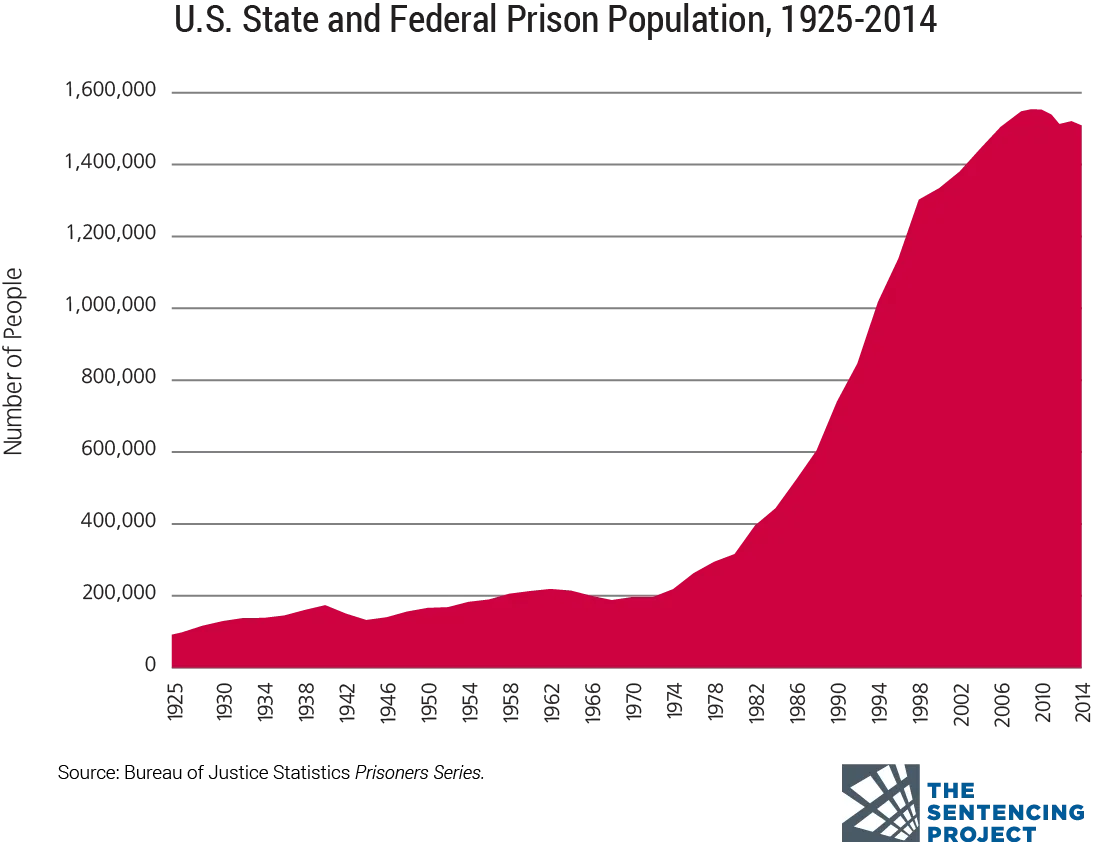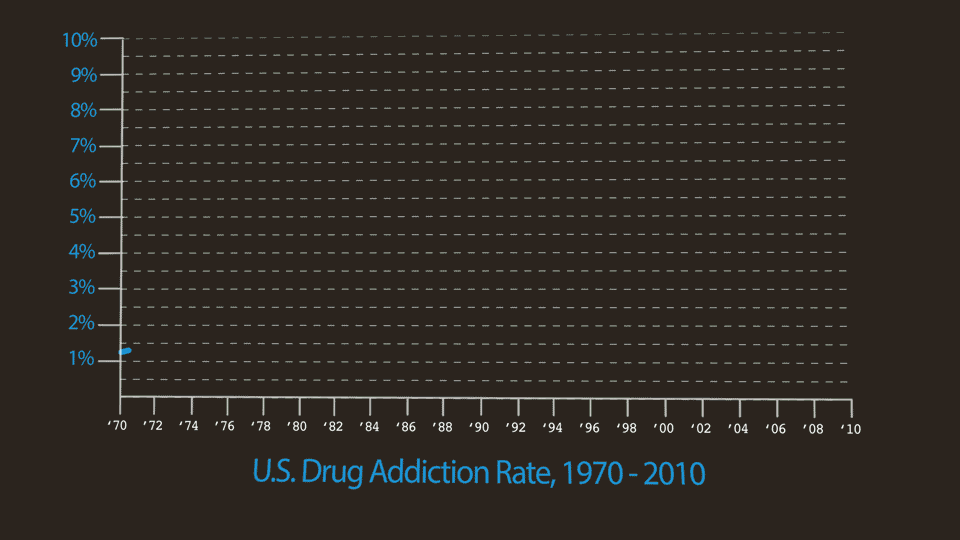The War on Drugs is a worldwide movement, lead by America, that has made efforts to prohibit the use and distribution of psychoactive substances. On the day of June 18, 1971, supposedly dangerous psychoactive substances were declared “public enemy number one” by President Nixon. The President continued by adding policies and utilizing federal resources to prevent the creation of new addicts. To this day the War has led to mass incarceration, minority targeting, political destabilization, and violence all over the world. It approximately costs the US nearly $1.5 trillion annually to fund the war’s initiatives. The War on Drugs is not a war on drugs it is a war on people. It is a war against the people that use socially unaccepted psychoactive substances.

According to PolitiFact, there has been a nearly 600 percent increase in the federal prison population from 1974 to 2014. The US population itself has grown 51 percent from 1974. According to Nancy La Vigne, The War on Drugs has been “the single biggest driver” in the increase of incarcerations in the US. Though some have argued that much of the increase has come from violent crimes not seemingly related to drug offenses. It should be noted that the increase in violent crimes could be related to the drug war. As stated in PolitiFact, “if policies cause the cost of drugs to go up, users might be more prone to steal in order to afford drugs. And black markets can lead to more violent crime, like if a drug deal goes sour and results in a murder”.
The drug war has not only caused mass incarceration but has also targeted, and affect the lives of minorities, and poor people negatively. Nearly 58 percent of all American inmates in 2013 were Black or Hispanic. Research shows that black people are more likely to face more stringent charges, and longer sentences than whites with the same criminal history, and when engaged in the same illegal activity. As for the drug war, research has shown that blacks selling drugs are 3.6 times more likely to be arrested than whites selling drugs. And are 2.5 times more likely to be arrested for possession, showing the racial disparity in the fight against drugs. Research further shows that incarcerated people have a median annual income of about 19,000 dollars before incarceration, which is 41 percent less than the income of non-incarcerated people of equivalent ages. This research does not directly show the impact of The War on Drugs on poorer populations but it does show that the incarcerated population is disproportionately poor.
With war comes violence, and The War on Drugs is no slouch. In Mexico, starting in 2006, armies under the lead of President Felipe Calderón, marched through the streets and engaged in a full-on war against drug trafficking. Mexico’s homicide rate soon doubled from the previous year. The war between police and drug traffickers has entailed 150,000 dead and nearly 28,000 missing. The drug war shows it’s failure as drugs continue to fill the US from Mexico and thousands remain dead as a result of the war against people. Currently, Mexican’s are forced to adapt to a state of unending violence, which is so deeply rooted in their society that it is likely that even decriminalization of drug use would be a fix to the issues they face.

Humans like drugs and they have since prehistoric times. Drugs like opium, alcohol, tobacco, and magic mushrooms have been used as mind altering substances for thousands of years. As shown by the graph above the US’s addiction rate has not changed since 1970 in the slightest. This further shows that The War on Drugs and it the policies that come with it have done nothing to change the number of people addicted to drugs. It seems it will take a war for some to understand that federal policies will not stop humans from doing illicit substances. As shown in the ages of prohibition simply making a substance illegal will not hinder people from using it. Drugs are simply molecules and a molecule can be neither good nor bad. So why is there a war over these molecules? There is no point to it when you understand that the prohibition of a drug will have little effect on its consumption as a whole. Instead, the war against these molecules has devastated the lives of many and has left the world a more violent and dangerous place.
Sources
https://www.theatlantic.com/national/archive/2012/10/chart-says-war-drugs-isnt-working/322592/
http://werehistory.org/why-prohibition-failed/
http://www.politifact.com/truth-o-meter/statements/2016/jul/10/cory-booker/how-war-drugs-affected-incarceration-rates/
http://www.huffingtonpost.com/2015/02/12/prehistoric-drug-use-thousands-of-years_n_6622446.html
https://www.nytimes.com/2016/10/10/opinion/a-decade-of-failure-in-the-war-on-drugs.html